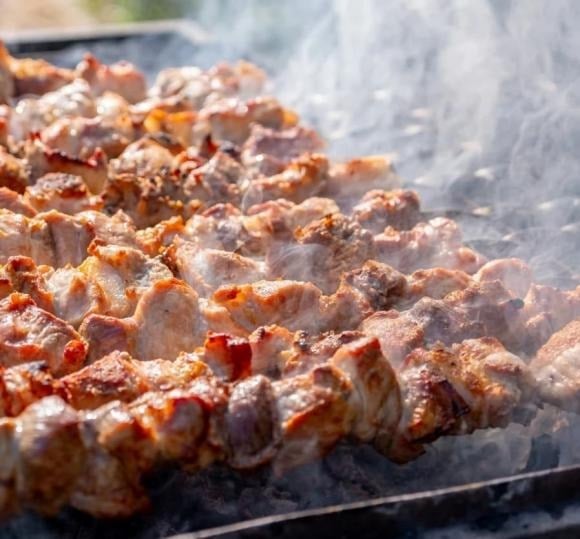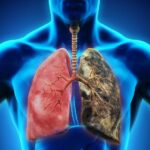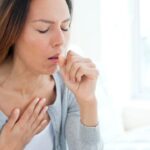Recent studies from the United States have revealed that two familiar groups of foods can promote the development of lung cancer. Regular consumption of these foods can put your health at risk and lead to serious health issues.
Cooking food at high temperatures: A hidden risk of cancer
Deep-fried, grilled, charcoal-grilled, and BBQ foods are not only high in calories but also produce free radicals and carcinogens when cooked at high temperatures. These substances can damage DNA, increase the risk of mutations, and lead to tumor formation when ingested.
These high-temperature cooked foods are familiar and convenient, but they can promote the development of lung cancer. The smoke, oil, and charred parts can irritate the respiratory and digestive systems, creating a favorable environment for chronic inflammation and cancer. Regularly consuming fried chicken, grilled skewers, and similar foods is akin to putting your body at high risk, and experts advise minimizing these as much as possible.

The sweet toxin: Sugar can also cause cancer
Research from the University of Florida and the University of Kentucky (USA) indicates that a diet high in sugar and fat can fuel cancer cells. After consuming large amounts of candy, soda, or refined carbohydrates, the liver converts them into glycogen for storage. This glycogen is the preferred energy source for cancer cells. Higher glycogen levels mean faster lung tumor growth rates. Conversely, restricting sugar can help slow the spread of malignant cells.
This means that excessive consumption of sugary drinks, sweets, and fast food not only leads to obesity but also quietly increases the risk of lung cancer.

Hidden danger: Snacking can promote lung cancer
Many people believe that as long as they don’t smoke, they can avoid lung cancer. However, a diet high in sugary drinks, fried foods, and candy leads to an energy surplus while lacking in fiber, vitamins, and essential antioxidants.
When the body’s ability to eliminate free radicals decreases, cell damage can accumulate over time. Combined with air pollution, work stress, and a sedentary lifestyle, the risk of lung cancer increases significantly.
What should you eat to prevent lung cancer?
Adopting a balanced and natural diet is crucial to lowering your risk of lung cancer. Consume plenty of colorful fruits and vegetables rich in antioxidants, along with high-quality protein from fish and soy products, to aid in cell repair and maintain a robust immune system.
Additionally, opt for low-temperature cooking methods such as steaming, boiling, or stewing, and avoid grilling or deep-frying. Limit sugary drinks and alcohol, and instead, hydrate with water or unsweetened tea. Building long-term healthy eating habits, rather than just “bingeing” before a check-up, is the most effective way to safeguard your lung health.
8 Warning Signs of Lung Cancer You Shouldn’t Ignore
“Be Alert and Vigilant: These Signs Could Point to Lung Cancer”
A subtle yet persistent cough, a change in your breathing, or unexpected weight loss could be indicators of a deeper issue. It’s time to pay attention and be vigilant about your health. Don’t ignore these warning signs and take charge of your well-being.
“Persistent Cough and Flu: Beware of These 4 Overlooked Signs of Lung Cancer”
Lung cancer is often diagnosed at a late stage, partly because its early signs and symptoms can be mistaken for those of the common cold, flu, or minor health issues. This often leads to individuals neglecting or overlooking these warning signs, missing the golden opportunity to detect and treat the disease in its early stages.





































